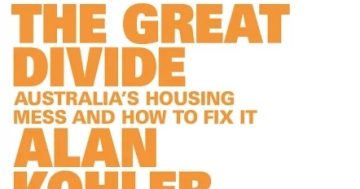Cameron Micallef* says a new survey has found that too many Australians are not well prepared to deal financially with a crisis.
 Australians are ill-prepared for any major setback financially, with one in five Aussies needing credit to get through unforeseen financial expenses, new research has found.
Australians are ill-prepared for any major setback financially, with one in five Aussies needing credit to get through unforeseen financial expenses, new research has found.
Research from comparison site Mozo has looked at how Australians fare financially when faced with unforeseen expenses or setbacks.
Only one in four Australians said they have the funds to weather unexpected costs and be financially buoyant, while the remaining 75 per cent admitted they would feel a degree of financial strain.
Half of working households currently have less than $7,00 in the bank, while one in 10 has less than $90 in their accounts right now.
“Unforeseen expenses are never a welcome surprise, and for many Australian families, the spread of COVID-19 is the most disruptive financial event that they’ve ever experienced — with hundreds of thousands likely to be out of work in the next few months,” said Mozo’s Director and money expert, Kirsty Lamont.
However, even households that are lucky enough to have $7,000 in savings would only last 4.4 weeks if they found themselves without a stream of income.
“Mozo research has found that three out of four Australians are not financially comfortable when unforeseen expenses or unexpected circumstances arise,” Ms Lamont said.
“Forty per cent don’t have enough money at the end of every pay packet to put money into savings and half the nation is saving less than $2,004 a month.”
“The images of hundreds of people queued outside welfare offices all across the country are a reflection of just how hard many Australians are doing it.”
The key to safeguarding
The financial expert advises Aussies that the health pandemic shows the importance of a safety net, given unexpected financial hits, while explaining how to build a financial buffer.
“Being stuck at home means our spending options are limited, so use this as an opportunity as a time to build a buffer,” Ms Lamont said.
“Aim to save at least 20 per cent of your take-home pay over the next few months.”
“While this may seem like a major feat, you could be surprised at how much your outgoings have reduced.”
“With a bit of fine-tuning, you could make major savings.”
“Review your spending, categorise your purchases and look for unnecessary purchases or automatic deductions.”
“Redirect money you’d normally spend out on things like dinners out, gym membership or new shoes towards a savings goal.”
“Use your time at home as an opportunity to future-proof your finances.”
* Cameron Micallef is a journalist for Momentum Media’s nestegg and Smart Property Investment.
This article first appeared at www.nestegg.com.au.











